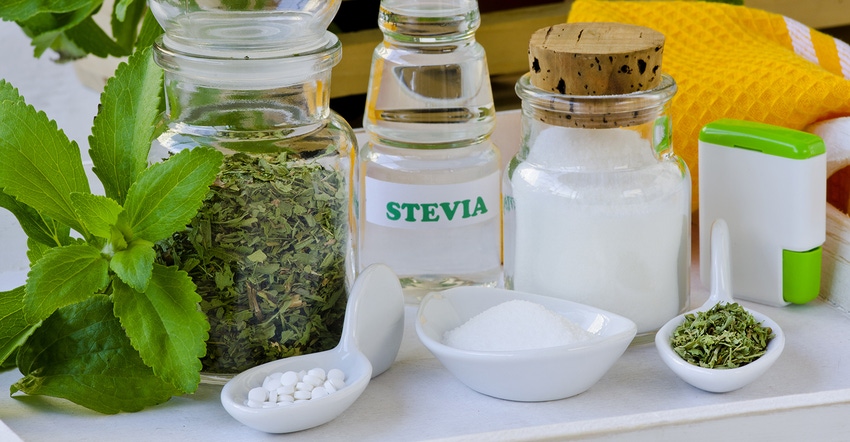Demand for natural sweeteners continues to rise
Consumers want reduced-sugar foods and beverages made with natural, familiar ingredients, but not at the expense of taste.

More consumers are embracing health and wellness and seeking out better-for-you products, resulting in tremendous innovation in the food, beverage and supplement industries that deliver novel products to feed and fuel the mind, body and soul.
This new paradigm in consumerism also includes a desire for products formulated with ingredients consumers can pronounce, as well as products with shortened ingredient lists. Nowhere is this more apparent the food and beverage industry, where increased numbers of consumers are demanding transparency about how ingredients are sourced and how products are manufactured.
According to the 2018 Food & Health Survey from the International Food Information Council (IFIC) Foundation, most Americans think about the healthfulness of the foods and beverages they consume. When asked to choose between two versions of the same product—an older one with artificial ingredients and a newer version without—69 percent chose the product with no artificial ingredients, while 32 percent opted for the one containing artificial ingredients.
When asked to identify the healthier of two products with the same Nutrition Facts Panel, 40 percent perceived one labeled “non-GMO” (genetically modified organism) as healthier versus 15 percent for one with genetically engineered ingredients, and 33 percent believed a product with a shorter ingredient list was healthier than one with more ingredients (15 percent). What’s more, 62 percent of consumers said they would pay up to 10 percent more for a product without artificial ingredients, while 42 percent said they would pay 50 percent more.
IFIC data also revealed consumption of and opinions regarding sugars have shifted over the years, with 33 percent of Americans pointing to sugar as the most likely calorie source responsible for weight gain. The findings aren’t surprising given sugar content in foods and beverages has been a politicized issue because of its association with several chronic illnesses, chief of which include obesity, diabetes, cancer and heart disease.
Due to the global obesity epidemic, nearly all forms of sweeteners are coming under intense scrutiny from health care professionals, lawmakers and consumer advocacy groups. This heightened attention to sugar intake—coupled with consumer demand for ingredients that are natural, sustainable and healthful—is forcing food and beverage companies to their rethink ingredient selection and marketing messages, especially in key categories considered indulgent or inherently caloric.
While consumers are monitoring their sugar intake and adhering to healthier diets, they are not willing to sacrifice taste for calorie reduction, especially in indulgent categories such as bakery, beverages and confectionery. The good news: brands are not standing idly by.
Examples of natural sweeteners increasingly being used include stevia and stevia blends, monk fruit, coconut sugar, sugar alcohols, syrups, prebiotic fibers and honey. Product formulators must be mindful that some ingredients are not a 1:1 replacement for sugar, and reformulation can affect product traits such as mouthfeel, texture, taste and functionality. Luckily, today’s clean label sweeteners provide formulators with a host of options to deliver deeper sugar reduction with a higher level of sweetness and improved quality of sweetness.
Learn more in INSIDER’s “Opportunities in the natural sweetener market” — deep dive.
About the Author(s)
You May Also Like






